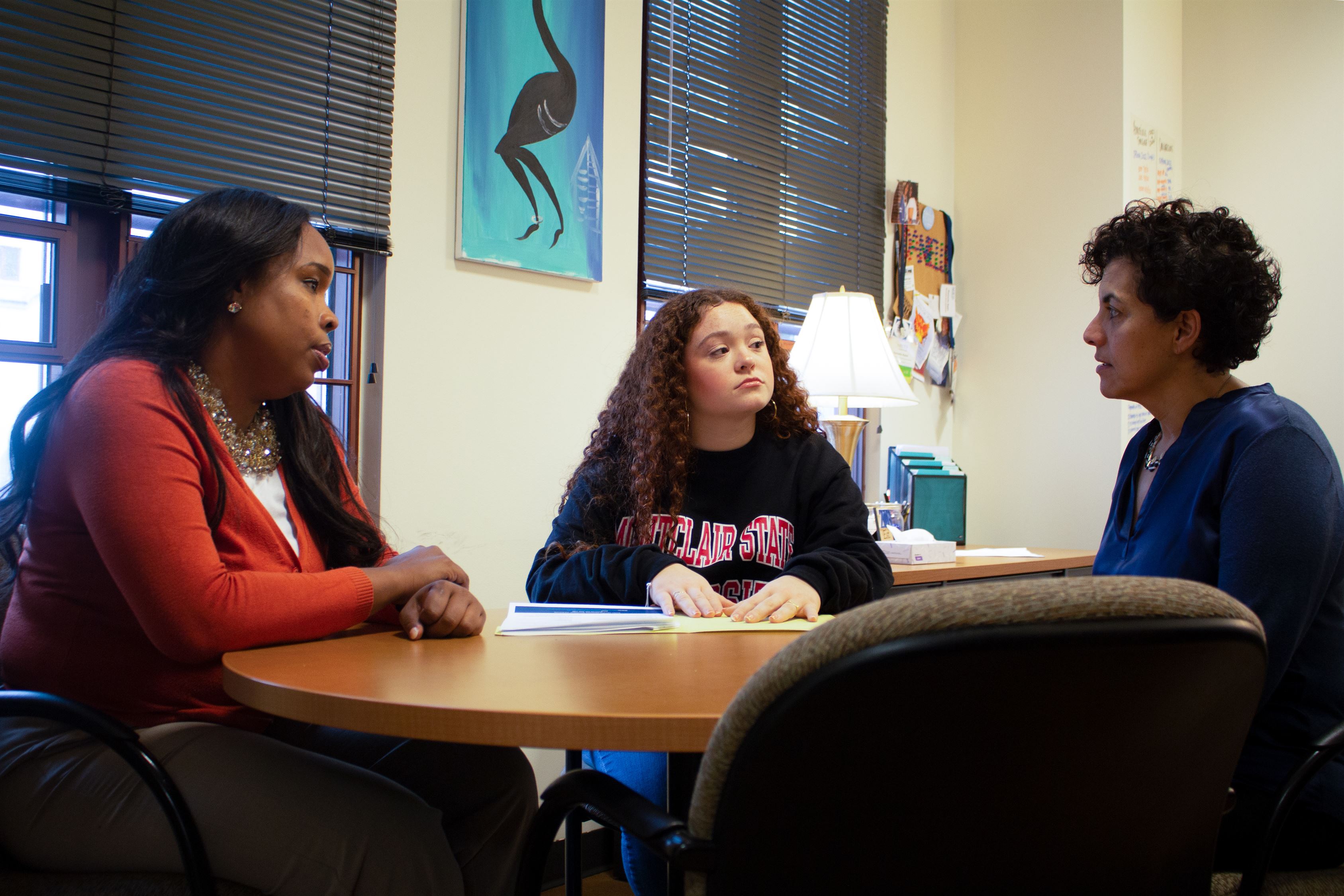When Melissa De Almeida learned about the Red Hawks Rising program during her senior year of high school, she jumped at the opportunity to become a part of it. To her, this was her way to begin her dream career of teaching.
“I was with my guidance counselor every day trying to figure [the application process] out,” De Almeida said. “I was missing class to figure this out [because] I felt that it was so important that I got it done as soon as possible.”
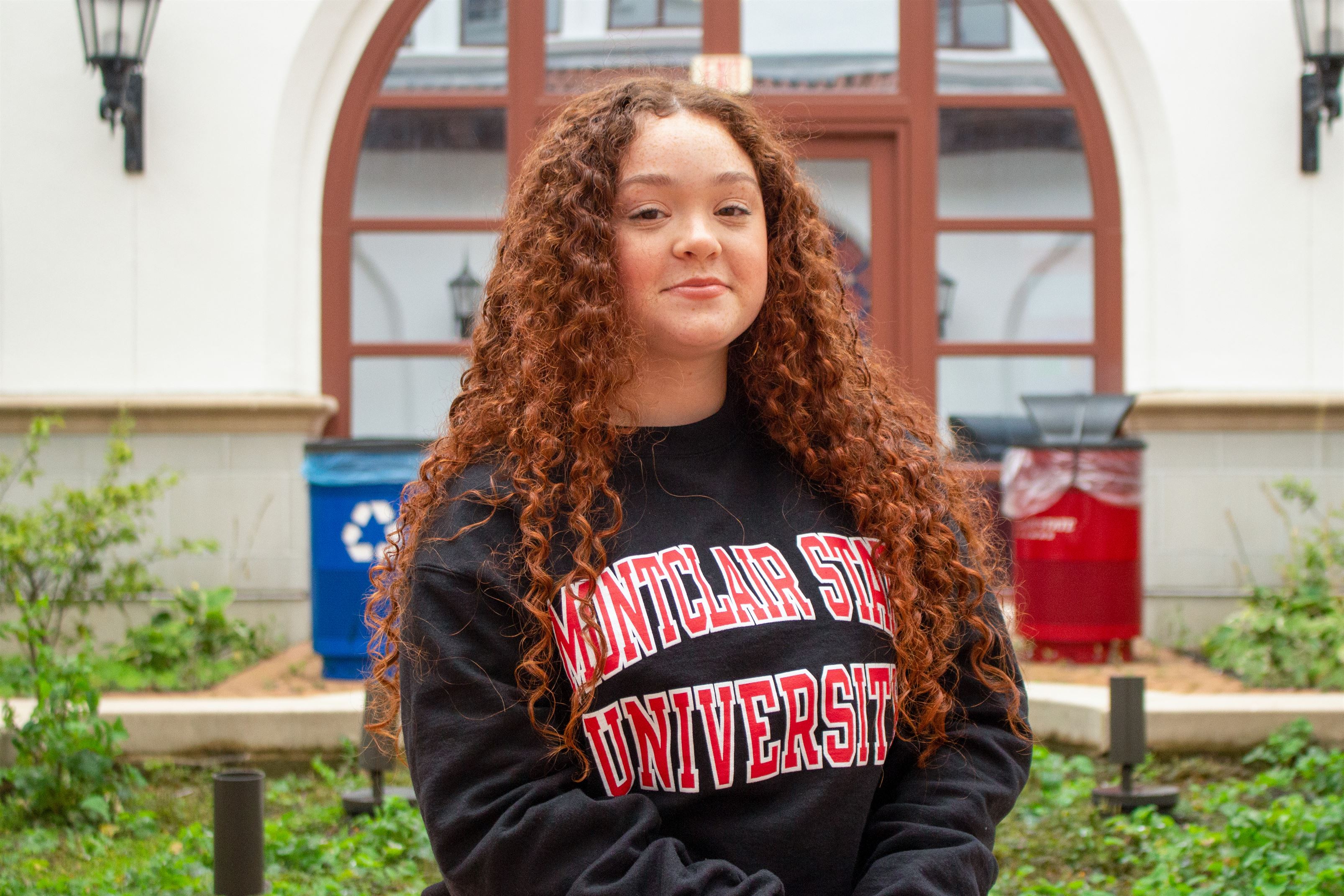
Melissa De Almeida, a freshman educational foundations major, graduated from East Side High School as one of the first students to take part in the Red Hawks Rising program.
Sal DiMaggio | The Montclarion
De Almeida, a freshman educational foundations major at Montclair State University hailing from the Ironbound district of Newark, is one of the first students to enter the Red Hawks Rising program. Created three years ago, the teacher pipeline program at Montclair State aims to create a positive cycle of social mobility and improves education conditions in Newark.
Students at University High School and East Side High School in Newark take college-level classes that prepare them for Montclair State’s teacher education program. When those students graduate high school, they sign a contract that guarantees them a teaching job in Newark once they graduate from Montclair State with a teaching degree.
Montclair State partnered with the Newark Board of Education and the American Federation of Teachers (AFT) to help students go through the program, with the AFT giving students a $3,700 stipend to help with educational expenses. The “grow-your-own” program is the first of its kind, and in the future, its creators hope it can serve as a model for other districts to fill the need for teachers.
Danielle Epps, the co-director of the program and director of admissions, recruitment and diversity in the teacher education program, described the ways the program changes students’ mindsets about higher education, describing the dual enrollment classes and the on-campus summer program that students attend.
“They really get a feel for what it’s like to be a student,” Epps said. “So it really is preparing them for what college can look like, but it also is exposing them to [the reality] that college is an opportunity that could be for some of them. [It’s] changing their mindset that it’s not something [they] can do, but it’s something [they] belong or [they] can fit in.”
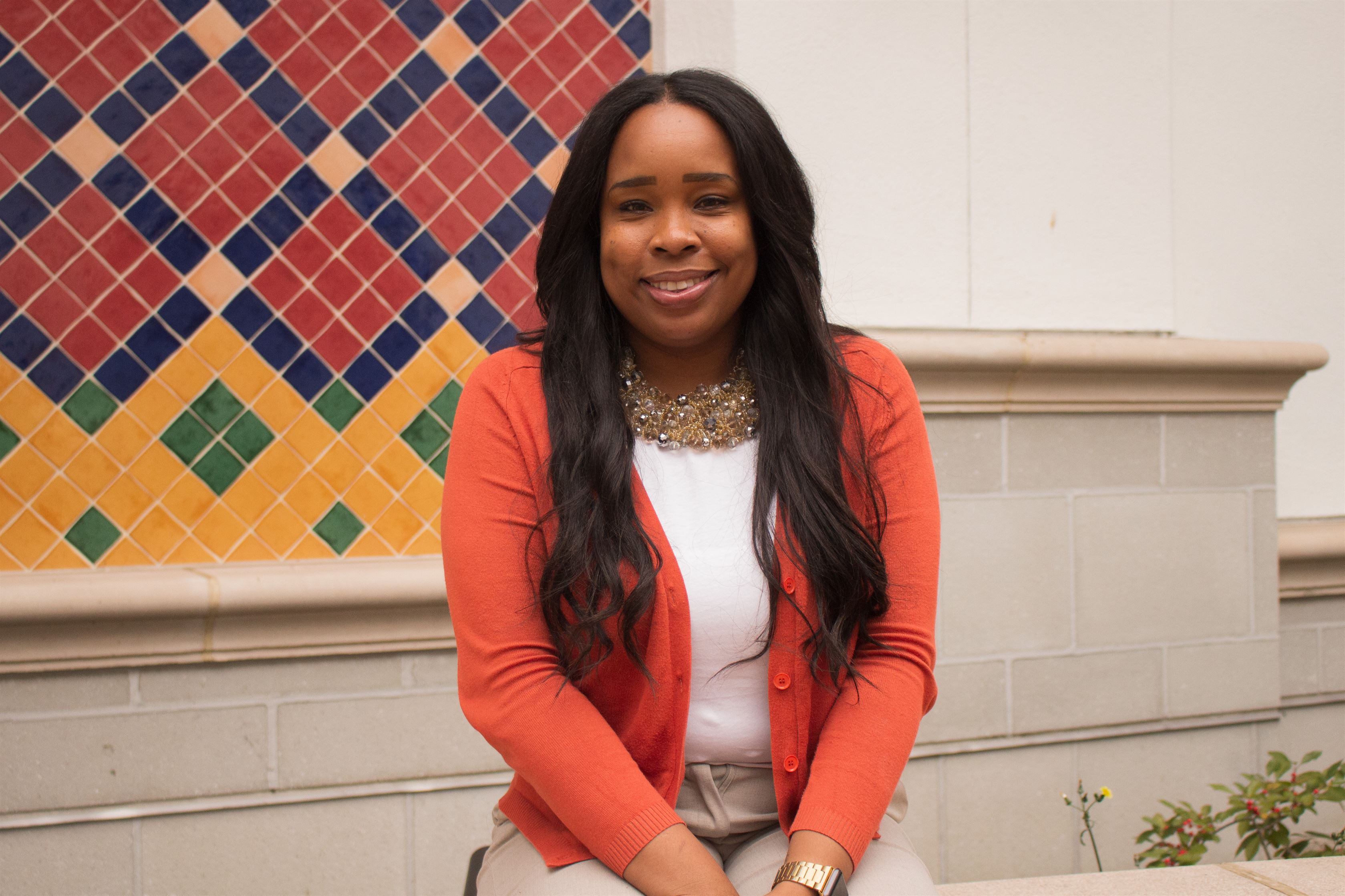
Danielle Epps, the co-director of the program, said that the program is helping students realize that a college is a place where they belong.
Sal DiMaggio | The Montclarion
Mayida Zaal, co-director of the program and a professor in the teaching and learning department, spoke about the importance of inspiring students to go to college, especially when they come from backgrounds that have had struggles with education.
“There’s a lot of opportunity here for dispelling the myths that urban communities or urban school districts or children in urban schools need to be remediated in some way, or that they have some deficits,” Zaal said. “We’re trying to challenge those ideas that this isn’t about deficits in individual students or individual students’ lack of ability, but that it is about systemic structures that have been in place for a long time that have created inequitable educational opportunities.”
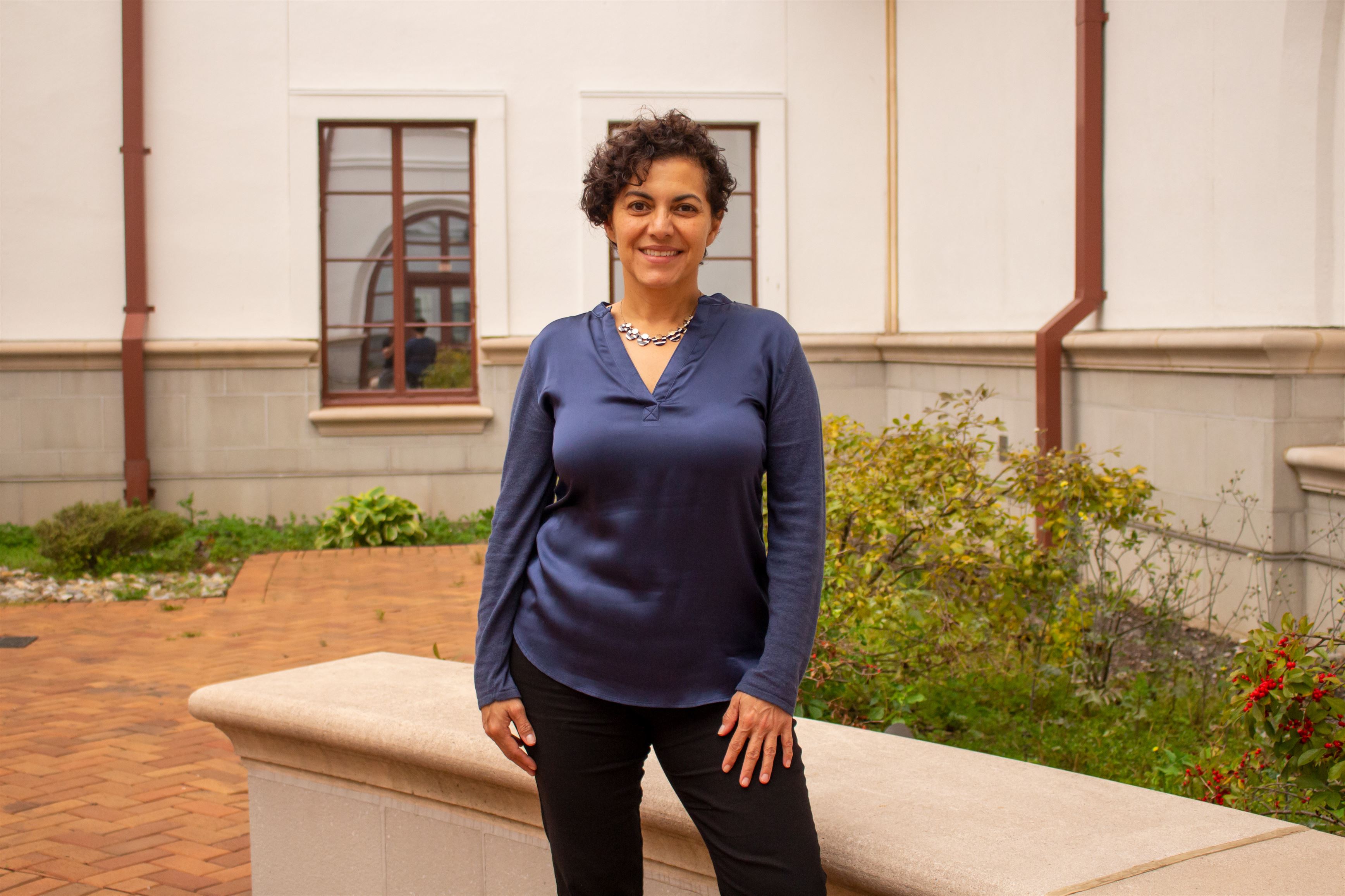
Mayida Zaal, co-director of the program, said that the program allows students to give back to their communities in important ways.
Sal DiMaggio | The Montclarion
De Almeida talked about how her family’s experience as immigrants from Brazil made education difficult and unenjoyable. Although De Almeida enjoyed her time in school, her sister faced many issues when it came to English being her second language.
“There were no aids, no bilingual teachers, no ESL classes, nothing to help [my sister] understand the language a little bit better,” De Almeida said. “So, basic things like ‘where’s the bathroom? When are gym days? When [is] picture day?’ [My sister] never understood.”
These language barrier issues are what inspired De Almeida to pursue a career as an ESL teacher so that children like her and her sister wouldn’t be voiceless.
“I always wanted to become a teacher, but that kind of pushed me a little bit forward,” De Almeida said. “I need to be a better teacher. I need to be what my sister never had, and I want to be a bilingual teacher so I would be helping the kids who don’t speak English.”
De Almeida said that opportunities like the Red Hawks Rising program give students like her the chance to flip the script for their communities.
“My parents are immigrants. My parents never got degrees [and] never went to school, but I can do it,” De Almeida said. “I didn’t immigrate here, but [for] the other kids that did immigrate to the United States and came to Newark and go to East Side [High School], they now feel like that they have a chance to go to [college].”
Zaal emphasized the importance of the program helping students give back to their communities.
“I think there’s real strength and power in being able to be part of [and contribute] to solutions in your own community that allow for, in this case, young people’s agency, to really shine and [for] the knowledge that’s already existing right within a community to be tapped into as sources of growth,” Zaal said.
Speaking of solutions, the program will allow De Almeida to fix a problem that she and many others faced while in school.
“Everybody in the Ironbound is bilingual,” De Almeida said. “Everybody either speaks Portuguese [or] Spanish. It was a bunch of different cultures, different ethnicities, so I was exposed to a lot, but the teachers didn’t always have the same ethnicity as us, so there wasn’t really such a big connection in the beginning.”
This made learning difficult for students in Newark, as teachers couldn’t properly relate to their students.
“It’s a lot easier to connect to someone when you know what they’ve been through when you grew up the way that they did,” De Almeida said. “It’s not like a rich teacher coming into a poor community, teaching poor kids how to do things. It’s like, ‘You don’t understand our struggles. You don’t know what we’ve been through.’”
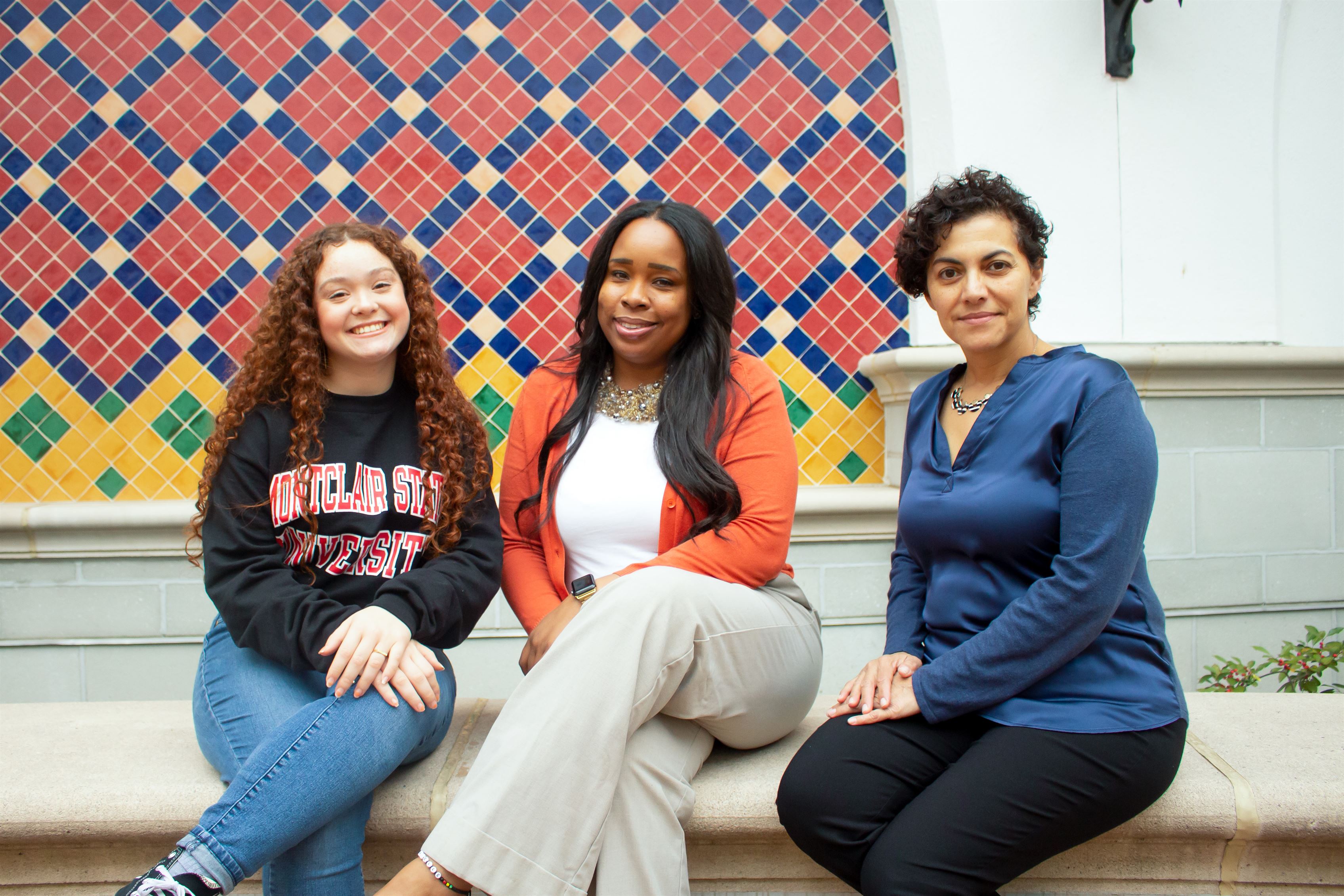
The Red Hawks Rising program is a partnership with the Newark Board of Education, preparing students for a career in teaching and guaranteeing them a job in Newark schools after they graduate college.
Sal DiMaggio | The Montclarion
Once she graduates, De Almeida hopes to be an ESL teacher for kids like her and bond over shared experiences. She plans on going back to Newark to teach at the middle school where she once roamed the halls, “like [the] good old days.”.
“I see myself connecting with a bunch of children, whether they all are from Brazil or Portugal,” De Almeida said. “I see myself not only being their teacher but their mentor, their role model, someone that they can look up to.”

